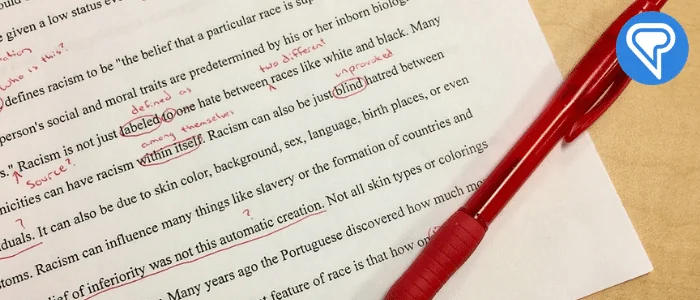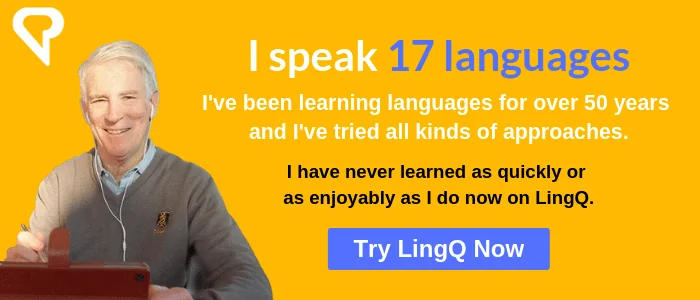Common English Mistakes: -ed and -ing Words was uploaded onto Steve’s YouTube channel on
May 6, 2019
The 90-Day Challenge is over. But, today I want to talk about English and I’m going to do a number of videos about English. I thought of maybe doing them in Spanish or Japanese or some other language because a lot of people, Spanish-speaking people, Portuguese-speaking people, Japanese-speaking, Chinese-speaking, Russian-speaking people learn English, but I will do them in English and I will speak slowly. If you use the captions, the subtitles here, you can then import this video into LingQ as a lesson so that you can hear what I’m saying, you can read what I’m saying and you can listen to and read some of the examples that I will give so that you can work on your English.
Now, when it comes to English or any other language it’s possible to write a big, long grammar book and I have such books. Here is one, which is a very popular book on English grammar. It has lots of complicated explanations, exercises on every page. So, for example, I just open the book: noun, clause, independent clause, a clause is a group of words, subordinate clause. The more grammar terms I come up against, the more confused I get. What I need in learning other languages is examples. I don’t need complicated grammar terms. I need examples of how things are said or written in the language. So that’s what I’m going to try to do in English in a series of videos about English.
If this is of interest to my viewers I could also have coaching sessions, just as we had during the 90-Day Challenge where I can talk about some aspect of English and people can get on and ask questions about things that give them problems in English.
So today I’m going to talk about ing: doing, giving, taking, being, all of the different words in English that end in ing and some of the problems that people have with these words. Now, it doesn’t matter whether we call that a gerund or a verb or a noun. It doesn’t matter. What we need to get a feel for, what we need to get used to is how do these words work.
I Googled the most common mistakes learners make in English, the most common ESL errors. You can Google this to see what the most common errors are, if you’re interested. Ing is on most peoples’ list. I chose the ing as an example because I had a conversation with a non-native speaker and she said I am boring. She may be boring, I don’t know. I don’t find her boring, but when she says I am boring she means that she as a person is a boring person. Of course what she meant to say is I am bored. We get this a lot. It’s a very common mistake.
Mixing up -ed and -ing words is a common mistake
People say, for example, I am interesting. I am interesting in movies. That is wrong. I am interested, not I am interesting. She may be interesting. Maybe she’s interesting. She has a lot to say. That would mean that she is interesting. Usually it’s the movie and the book that are interesting and a person is interested or bored or excited, but not exciting. Someone may be exciting, but that’s for me to say. The person says I am excited about my trip. It’s very important and this is a very common mistake. Those words in particular, boring, interesting, exciting, it’s very common for people to get them wrong. If you’re talking about yourself, usually you are bored or interested or excited. A movie might be boring. The movie is boring. The book is boring. The book is interesting. The movie is interesting. I am excited about my trip or this is an exciting movie. That’s the first and most obvious place where people confuse the ing word. Basically, the ing word, again, you can call it a gerund or verb or whatever, is kind of like a state. I am something. What are you? I am interesting. The book is interesting. Actually, it’s an action. I am interested. I am excited.
Now, in the same conversation this person said to improve my English I have to stop to read in Spanish. I have to stop to read in Spanish. That’s wrong again. I have to stop reading in Spanish. If you stop to read, that means you’re walking along and then you stop to read the sign. Stop to do something. You’re going to stop reading.
How to fix your mistakes
I am sure that in many grammar books you can find explanations of all the different situations where you need to say stop reading instead of stop to read, but this is a message that I will be repeating. We have to get used to how the language works. The explanations are difficult for us to understand until we already have a lot of experience with the language so that the explanation describes something that we already know. The main thing is to get used to the language.
Now, to get used to the language, if you are a member of LingQ and you’re dealing with this ing issue, I think you should save words. Save words and phrases that contain the ing. I am going is a phrase. I have been going is a phrase. Save all of these phrases in order to become familiar because the first step to getting used to and becoming familiar with these problems that you may have is to aware of them, to notice them and you have to help yourself to notice them. In the next few videos, if these videos are interesting to you, then I will be giving you many examples and you should try to remember some of these examples.
The other thing you can do if you’re not a member of LingQ is you can Google. So Google am interesting, Google am boring and see what you get. You won’t get natural English phrases. You’ll get some explanations about why this is a mistake. Whereas if you Google am interested, am doing, you’ll see lots of examples of these phrases in use in natural contexts. So these kinds of activities, Googling the mistaken phrase, Googling the correct phrase or saving phrases at LingQ are all going to help you notice and that’s where it starts. Start by noticing.
The other thing is you’re not going to be perfect overnight in English. So if you can focus on one problem at a time, put your energy and effort into noticing and developing good habits about one problem and then the next problem, gradually, your English will become more natural.
So I will continue these videos if there’s interest and I look forward to hearing from you. Bye for now.
Is English hard to learn? Check out this LingQ blog post to find out!






